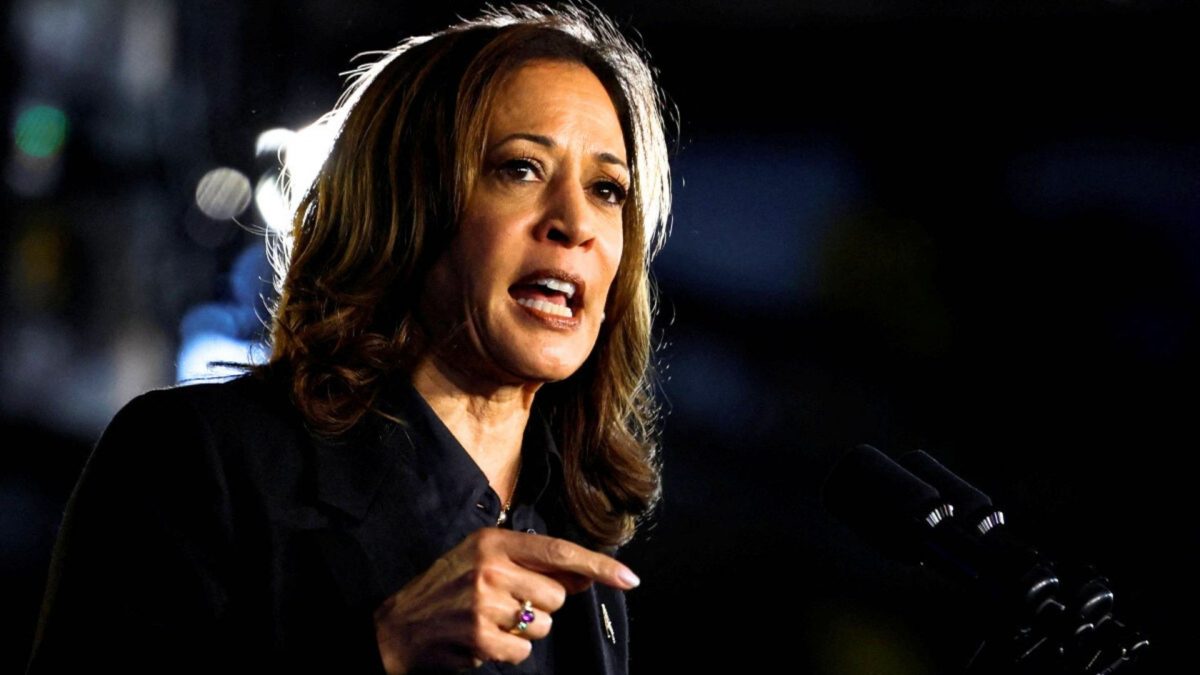The 2024 US presidential election has already seen some shocking moments.
From US President Joe Biden dropping out of the race to the ascent of Vice President Kamala Harris to the top of the ticket to an assassination attempt on former president Donald Trump.
Not to mention the crisis in West Asia with Israel, which is at war with Hamas in Gaza, exchanging attacks with Lebanon.
Some, including Hillary Clinton, are warning Kamala Harris that an ‘October surprise’ could be in the offing.
“I anticipate that, you know, something will happen in October, as it always does…” Clinton said. “There will be concerted efforts to distort and pervert Kamala Harris, who she is, what she stands for, what she’s done. I mean, look, I mean, the crazy story about me running a child trafficking operation out of a basement of a pizzeria.”
“It was a huge story. And it got one young man in North Carolina to get in his car with his, you know, assault rifle and drove up to liberate these non-existent children and shoot up a pizzeria in Washington, DC.”
“This is dangerous stuff. It starts online often on the dark web. It migrates. It’s picked up by the pro-Trump media. It’s then reported on by everybody else, which makes sure it has about 100 percent coverage, and people believe it,” Clinton said.
But what is an ‘October surprise?’ What are some example of it?
Let’s take a closer look:
What is it?
The term October surprise has been around since the late 19th Century.
Impact Shorts
More ShortsHowever, it initially had nothing to do with politics.
Instead, it was about sales at department stores and clothing shops.
When it comes to politics, the term refers to a shocking and unexpected incident which occurs at the last minute and changes the course of an election.
It was first used in the 1980 campaign Ronald Reagan’s campaign manager William Casey, as per The Smithsonian.
Reagan, the Republican challenger, was facing incumbent Democrat Jimmy Carter.
At the time, the Iran hostage crisis – when dozen of Americans had been taken hostage by Iranian students at the American embassy in Tehran – had rocked the United States.
Reagan’s team was afraid that Carter would solving the problem and then cruise to re-election.
“The biggest fear in Ronald Reagan’s inner circle is that President Carter will get an unexpected boost in the campaign from an ‘October Surprise,’” the Washington Post wrote at the time.
“Reagan and his aides … expect [Carter] to pull what they call ‘the October surprise,’ meaning that shortly before Election Day, he will inflate the importance of some overseas event in an attempt to rally the country around him,” Time Magazine added.
But that didn’t happen.
Instead, the situation continued to drag on with Iran until Election Day – making Carter look like a feckless president.
The hostages were only released on January 20, 1981 – minutes after Reagan took office.
Some have alleged that the Reagan campaign reached a deal with the mullahs in Iran to trade hostages for arms.
What are some examples of it?
In October 2020, _The New York Time_s reported that Trump paid just $750 in federal income taxes in his first year as president.
While this was shrugged off by Trump supporters, it doubtlessly inflamed Democrats and troubled independents.
However, it was likely Trump’s own infection with COVID-19 – after which he was taken to Walter Reed medical hospital – that likely cost the then sitting president dearly.
Many have argued that it was Trump’s shambolic handling of COVID-19 that cost him the presidency to Joe Biden.
The 2016 election witnessed two October surprises.
The first was the Washington Post on October 7, 2016, publishing their story on Donald Trump’s ‘Access Hollywood’ tape.
Many thought the story of Trump being caught on tape bragging about sexually assaulting women would put an end to any hopes of him becoming president.
The other was a letter to Congress from then FBI director James Comey on October 28, 2016, in which he said he was reopening the investigation into Hillary Clinton’s private email server days just days before the election.
Many, including Clinton herself, think this letter cost her the election against Trump.
The Justice Department later in a report found that Comey committed a “serious error of judgement” in doing so.
Comey defended his actions in an op-ed published in The New York Times after the report was released.
“In 2016, my team faced an extraordinary situation — something I thought of as a 500-year flood — offering no good choices and presenting some of the hardest decisions I ever had to make,” Comey wrote.
In 2012, the October surprise was nature.
Hurricane Sandy hitting the East Coast is thought to have influenced Obama’s re-election prospects.
The sitting president, who was thought in a tight race against Mitt Romney, swung into action and was seen as leading the response efforts to the hurricane.
His embrace by then Republican governor Chris Christie also made headlines and was hailed as an example of bipartisanship in action.
What do experts say?
Experts say that in such a close race, any factor could put either Harris or Trump over the top.
“In any super close race, where the electorate is divided down the middle, a difference of a percentage point or two could be decisive,” David Greenberg, a presidential historian at Rutgers University, told BBC.
“I don’t have any fingernails left,” Greenberg added.
“I could totally imagine this election going either way with extremely significant consequences riding on that vote no matter where your loyalty is.”
Others point to wildcards, like political violence for example, which could have a potential impact.
“I’m most concerned about vote-counting and election judges and violence. There’s been a pretty clear pattern of threats about who gets to count votes,” John Murphy, a professor at the University of Illinois, was quoted as saying by The Hill.
With inputs from agencies
)